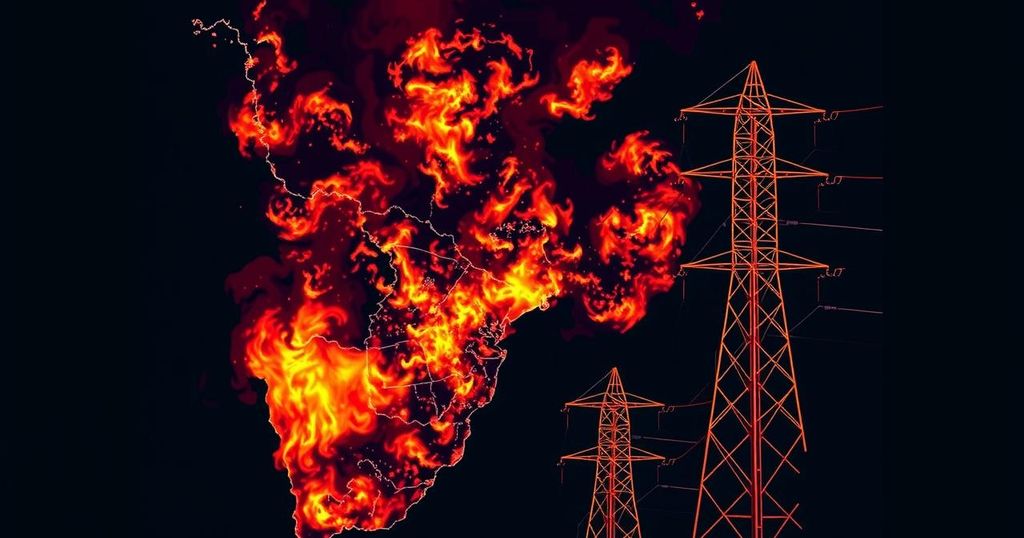Zambia and Zimbabwe Face Nationwide Blackouts Amid Electricity Crisis
Zambia and Zimbabwe experienced nationwide blackouts on Sunday evening due to power supply disruptions from the Kariba Dam, attributed to drought conditions. The Zambian government confirmed the outage affected the entire country, while reports indicated a system disturbance in Zimbabwe. With power shortages averaging seven hours a day, many are turning to alternative energy sources, such as solar power.
On Sunday evening, Zambia and Zimbabwe experienced nationwide blackouts as electricity supply was disrupted. This outage coincided with an ongoing electricity crisis affecting both nations, largely attributed to drought conditions that have severely depleted water levels at the Kariba Dam, their primary source of hydropower. The Zambian government confirmed the outage occurred at 20:15 hours, affecting the entire country, although no significant incidents transpired at key locations, such as the University Teaching Hospital, which reported no casualties due to effective backup systems. Restoration efforts commenced swiftly, with the hospital regaining power within 30 minutes, though it was not specified when the broader national grid would be restored fully.
As reports indicated, the Zimbabwe Power Company noted a “system disturbance” that led to the blackout at approximately 8:25 PM local time. By the following morning, the majority of load centers in Zimbabwe were operational again, although both countries are currently limited to approximately seven hours of electricity per day. This scarcity highlights a critical dependency on the Kariba Dam, where water levels for power generation were recorded at a mere 2.40 percent as of November 18, according to the Zambezi River Authority. Given the lack of reliable power supply, residents are increasingly resorting to alternative energy options, particularly solar energy, to cope with power shortages.
Zambia and Zimbabwe heavily rely on the Kariba Dam for hydroelectric power, which is currently struggling due to severe drought conditions affecting water levels. The dam, located on the border of the two countries, has seen a significant drop, compromising the ability of both nations to generate sufficient electricity. As a result, both countries have faced prolonged power cuts, averaging only seven hours of electricity supply per day, leading to growing concerns and the exploration of alternative energy sources such as solar power.
The recent nationwide power outages in Zambia and Zimbabwe underscore the severe electricity crisis both nations are grappling with, predominantly due to the reduced water levels at the Kariba Dam. As authorities work to restore regular power supply, the situation highlights the urgent need for sustainable energy solutions to mitigate future disruptions and reduce dependence on hydroelectric power.
Original Source: www.barrons.com




Post Comment